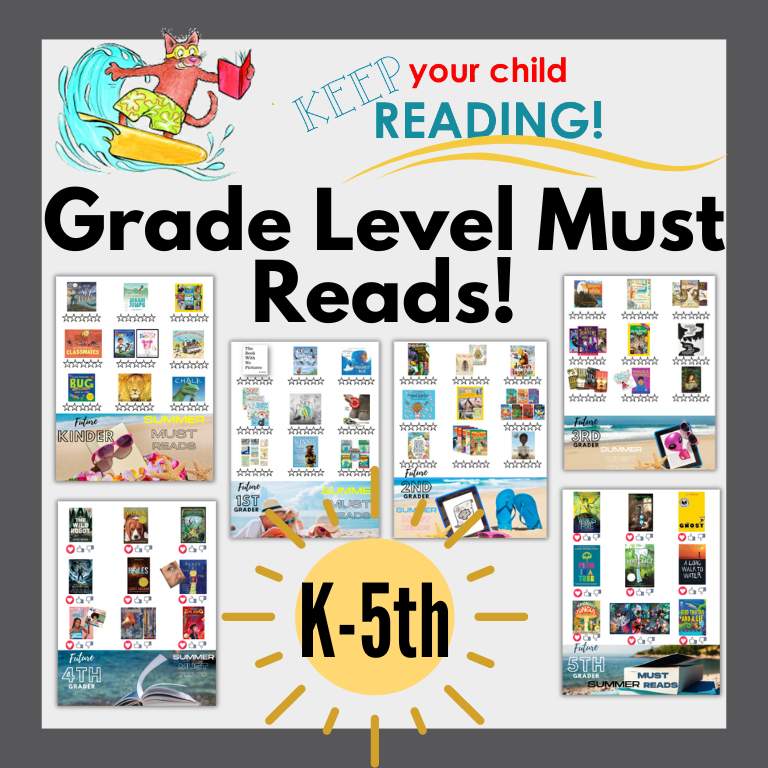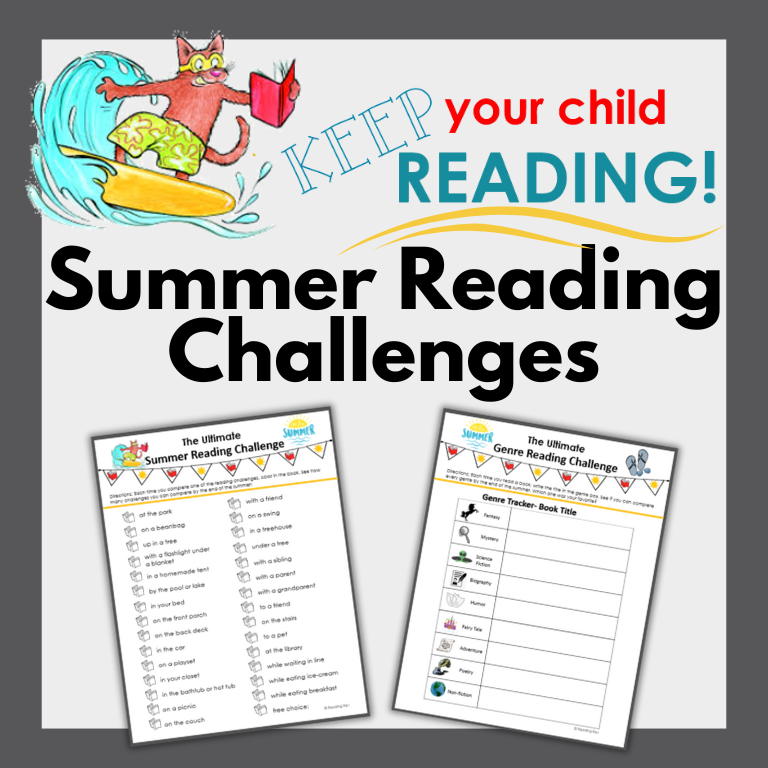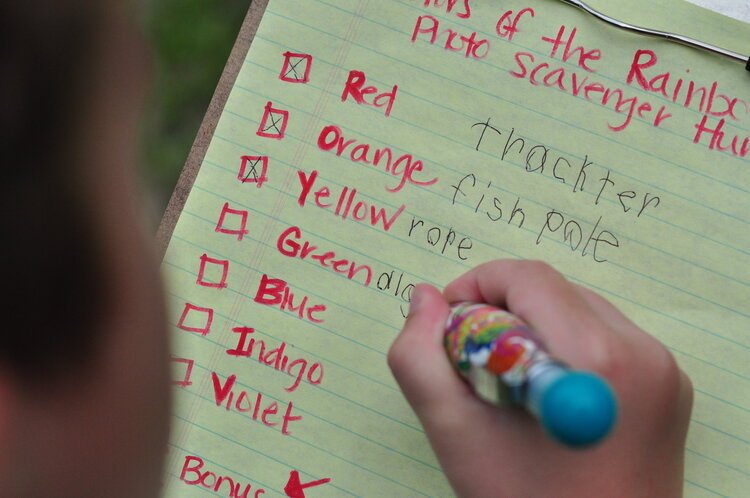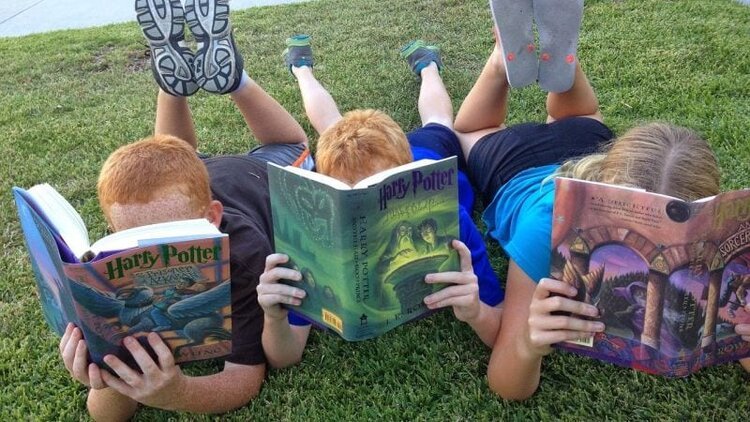Summer Slide: 7 Best Tips to Avoid It
So, this time of year you start hearing it. The buzz in schools about “growth” and “benchmarks,” and then, the inevitable talk about the dreaded “summer slide.” Maybe you have been the parent sitting in a conference when it comes up and you have never even heard the term before. Maybe you are the teacher worried about all the progress that has been made simply vanishing into the chlorinated pool water.
Let’s be honest. It’s time for a candid, realistic conversation about the summer slide. What is it and how bad can it really be? And, more importantly, what can parents and teachers do to minimize its effects while still allowing our kids to enjoy the magic of summer.
Summer slide is the term educators use when talking about the loss of academic ability students display after not being in school for 2-3 months during summer break. The summer slide is measured by comparing a student’s spring standardized test scores and that same student’s fall scores.
ON AVERAGE, CHILDREN ARE SET BACK 25% IN READING EACH SUMMER.
-U.S. DEPARTMENT OF EDUCATION
The average student loses approximately 2.6 months of grade-level equivalency in math computation skills over the summer months and ALL young people experience learning losses when they do not engage in educational activities during the summer. (Research compiled for an Association for Public Policy Analysis Management Conference report).
And, teachers typically spend 4 to 6 weeks re-teaching content that students have forgotten over summer vacation when returning in the fall, according to John Hopkins Center for Summer Learning.
So, is summer slide something that parents and teachers need to be concerned about? Yes.
This is especially true for students who are below grade level and struggling. But as a parent, what do you do about it?
Use these 7 Tips to Avoid Summer Slide:
Tip #1:
Create opportunities and times that your child will want to read. Have your child read at least 20 minutes everyday. But, don’t make this an obligation, chore, or “must do.” Go to the library and sign up for the free incentive programs. Visit a cool book store and give your child $10 cash upon arrival. Create a reading nook or fort in your child’s bedroom.
“It’s not about teaching your child to read. It’s about teaching your child to love to read.”
-Dr. Dahlia Hall
Have your child check off books from a Summer Must-Read Book List!
Future Kindergrtener's Summer Must Read List
Future First Grader's Summer Must Read List
Future Second Grader's Summer Must Read List
Future Third Grader's Summer Must Read List
Future Fourth Grader's Summer Must Read List
Future Fifth Grader's Summer Must Read List
Engage them in Summer Reading Challenges! Two simple ones can be found for free here.
Here are a few national reading incentive programs. You can find an entire list in the Resource Library all summer!
Tip #2:
Read along side your child. Model reading. Talk enthusiastically about books you’re reading. Research shows that one of the greatest indicators or children’s literacy success is having role models and guardians who show they value reading. This is especially true for dads!
Tip #3:
It’s not all about books! Have your child read and write recipes, scavenger hunts, treasure maps, “how-to” articles, travel brochures, song lyrics, game directions… the list goes on and on. Create a literate environment! Place interesting reading material everywhere and kill the mandatory 20-minute timer!
Find amazingly interesting things that kids will just be drawn into reading without even realizing they are reading.
Tip #4:
Make literacy social. Have your child join a book club, organize a neighborhood book swap, perform a skit with friends, or host a poetry slam. It can be virtual or bring these opportunities to life in a coffee shop, park, or even at the pool.
Tip #5:
CHOICE builds motivation. Let your child have as much choice as possible about what they read. Obviously, age and maturity appropriate, but research points to building literacy motivation through interest and choice. If your child has required summer reading, build excitement around it and supplement with trips to the library and book store where some high-interest, choice material is available.
Tip #6:
In a perfect world, every day, every child…
Reads something they choose.
Reads something accurately.
Reads something they understand.
Writes about something that is meaningful to them.
Talks to peers about their reading and writing.
Listens to a fluent adult read aloud.
Richard L. Allington, University of Tennessee
Tip #7:
Literacy Online. We know that right now we are all trying to limit screen time so this should not replace tangible books, but it can add some variety on long summer days.
Here are a few links we like:
PBS Kids
ABCya
http://www.abcya.com/lightbot.htm
Enchanted Learning
http://www.enchantedlearning.com/usa/states/colorado/
Word Wall
https://wordwall.net/community
Epic!
Madlibs
Newsela
Find Book Levels
Other online ideas:
Kids do hilarious book reviews on Amazon Two Lions YouTube channel! Have your kids watch for books they’d like to read and then make their own. It is amazing how motivated a kid can be when given the chance to be on YouTube (even on a private channel no one will ever really see!)
Any author your kid is interested in most likely has a cool website. Here are a few of the best! Start calling authors by name and talking about them like they are friends and everyday people.
http://www.shelsilverstein.com/
http://www.scaredysquirrel.com/aboutmw.html
http://gws.ala.org/category/literature-amp-languages/authors-illustrators
Also, know that if your child is struggling with reading, systematic, targeted instruction is necessary! Fun summer reading will most likely not catch your student up if they have a true deficit. Summer may be a good time for data-driven remediation. You can find out more about common reading disabilities here, and find out what you can do about it here. Please reach out if you need further recommendations. We’ve been there.










